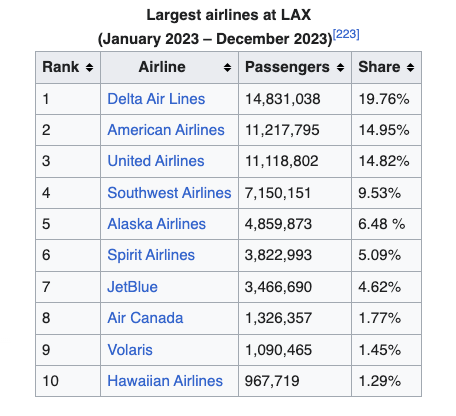Tom's Top 3: July 23, 2024
DEFY THE PENGUINS
Hi everyone! Welcome to this week’s installment of Tom’s Top 3 Tuesdays, where I highlight three pieces of content (Podcasts/Shows/Songs/Articles/etc.) that I found interesting or noteworthy from the prior week.
If you’re new here, please consider subscribing to my newsletter — the creatively named: Tom’s Newsletter. In addition to posts like these, I write about my interests (the entertainment industry, sports, fitness, productivity, and more!) and books that I am reading.
If there’s someone you know who would enjoy this post, feel free to share using the link below. I really appreciate the support!
Let’s get into it:
[Podcast] How I Write - Learn Great Copywriting in 76 Minutes | Harry Dry
Harry Dry is anything but dry. Just take a look at him. Rounded glasses, a Chinese Tang Suit Jacket, and the shortest short shorts money can buy. He looks like if Harry Potter ended up with Cho Chang and moved to Soho.
The title belies the true value of the podcast. This interview is a display of mastery in one’s craft. Whether you care about copywriting or not (I don’t), this interview may change your mind (I do?).
I admire Harry’s dedication to his passion and fluency with the subject matter. You can hear the joy in his voice, and he speaks with a level of structure that is only possible for someone who has put in the hours.
I’ll highlight a few of my many takeaways from Harry:
Three rules for every sentence
Can I visualize it?
Can I falsify it?
Can nobody else write this?
Write first, revise later
Writing simply is simply rewriting
Design/write in the medium you are presenting in to see how your user would experience it
Kaplan’s Law of Words: if a word isn’t working for you, it’s working against you
And I’ll end with my absolute favorite quote from the interview that made me laugh and reach for my notebook at the same time:
A good paragraph is like a burrito… I should be able to throw it to you, and you should be able to catch it, and it shouldn’t come apart in the air.
A writer needs to show, not tell. Just as Harry Dry describes how good copywriting has to be succinct, direct, and differentiated, David Mamet believes it is the writer’s responsibility to avoid tedious exposition and make every scene dramatic.
Each scene must answer three questions:
Who wants what?
What happens if they don’t get it?
Why now?
Studio executives, or “penguins,” may want to merely convey information. Mamet emphatically disagrees:
The job of the dramatist is to make the audience wonder what happens next. Not to explain to them what just happened, or to *suggest* to them what happens next.
I’ve never seen “The Unit,” but I am tempted to watch to see if Mamet’s wishes were realized.
[YouTube] Bilt Rewards - Why Alaska Airlines Miles Are So Valuable
This video effectively covers multiple important “travel hacking” principles in under five minutes.
He explains airline partnerships (how Alaska Airlines miles can be used to book flights with other Oneworld alliance members, like American Airlines), how credit cards can be a useful way to accrue points for travel, how to book flights using miles, and the power of award calendars.
A little tip for travelers who are also pursuing status with an individual airline: you are more likely to get upgraded on airlines which have a hub at your home airport but isn’t one of the top two most popular airlines at that airport.
For example, LAX is an Alaska Airlines hub and will have great availability, but most business travelers will be flying on the top airlines (Delta and American).

Since business travelers are likely to have top tier airline status, you won’t have to compete with them for upgrades if you target one of the less popular airlines, like Alaska.
That wraps up this edition of Tom’s Top 3 Tuesdays. If you know anyone who would like this newsletter, please consider sharing. I’ll be back next week. ✌️

